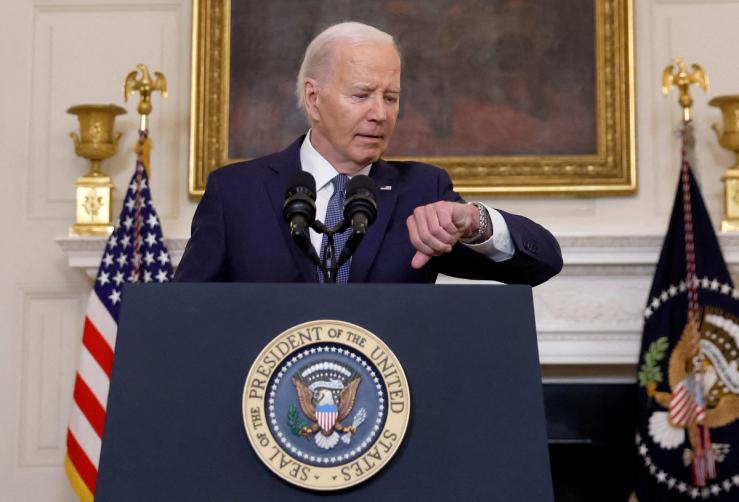The News
Israel agreed to the contours of a ceasefire proposal laid out by US President Joe Biden, an aide to Israeli Prime Minister Benjamin Netanyahu said on Sunday. But several roadblocks remain to securing a deal to end the war in Gaza.
Biden outlined a three-phase plan on Friday. Phase one would involve a six-week “full and complete” ceasefire and allow hundreds of aid trucks into Gaza daily; in exchange Hamas would release “a number” of Israeli hostages. In phase two, the remaining hostages would be released and Israel would completely retreat from Gaza. Phase three would initiate the reconstruction of Gaza.
Senior Netanyahu advisor Ophir Falk said it was “not a good deal,” but one “we agreed to.” Hamas also responded positively.
SIGNALS
Biden’s political gambit puts pressure on both sides
Biden’s deal framework is similar to a proposal that was already on the table, but Biden’s move both confirmed that a deal was in play and made it public, in turn making it harder for Israel or Hamas to back out. It’s possible Biden played his hand “because… he wants to call their bluffs,” The Atlantic’s Yair Rosenberg wrote. The plan has concessions for both sides: It lets Israel pursue its goals of eradicating Hamas before a permanent ceasefire takes place, while also being “nearly identical” to a proposal Hamas previously agreed to, a US official told Haaretz.
Far-right ministers threaten to quit over deal
Two far-right ministers in Netanyahu’s cabinet, who each lead an ultranationalist party, threatened to quit the coalition and bring down the government if Netanyahu agrees to the deal. National Security Minister Itamar Ben Gvir said the deal equated to “ending the war and giving up on destroying Hamas.” Throughout the war, Netanyahu has faced pressure from far-right politicians — crucial to his coalition — to pursue “absolute victory” over Hamas. The country’s opposition leader, meanwhile, promised to provide a “safety net” for Netanyahu if he accepts the deal, to ensure his government won’t fall.
Plan for the ‘day after’ remain unclear
Biden called for “the day after to begin,” but the current plan does not specify how Gaza would be governed when the fighting stops. Disagreements over post-war Gaza present an obstacle to a possible deal, since Israel has ruled out any role for the Palestinian Authority, meaning Hamas or another power could fill the vacuum, while critics have called on Netanyahu to lay out his vision. Biden’s decision to publicize the proposal, Haaretz’s Zvi Bar’el wrote, could be an effort to “urgently develop a plan for managing Gaza at each stage of the proposal.”



